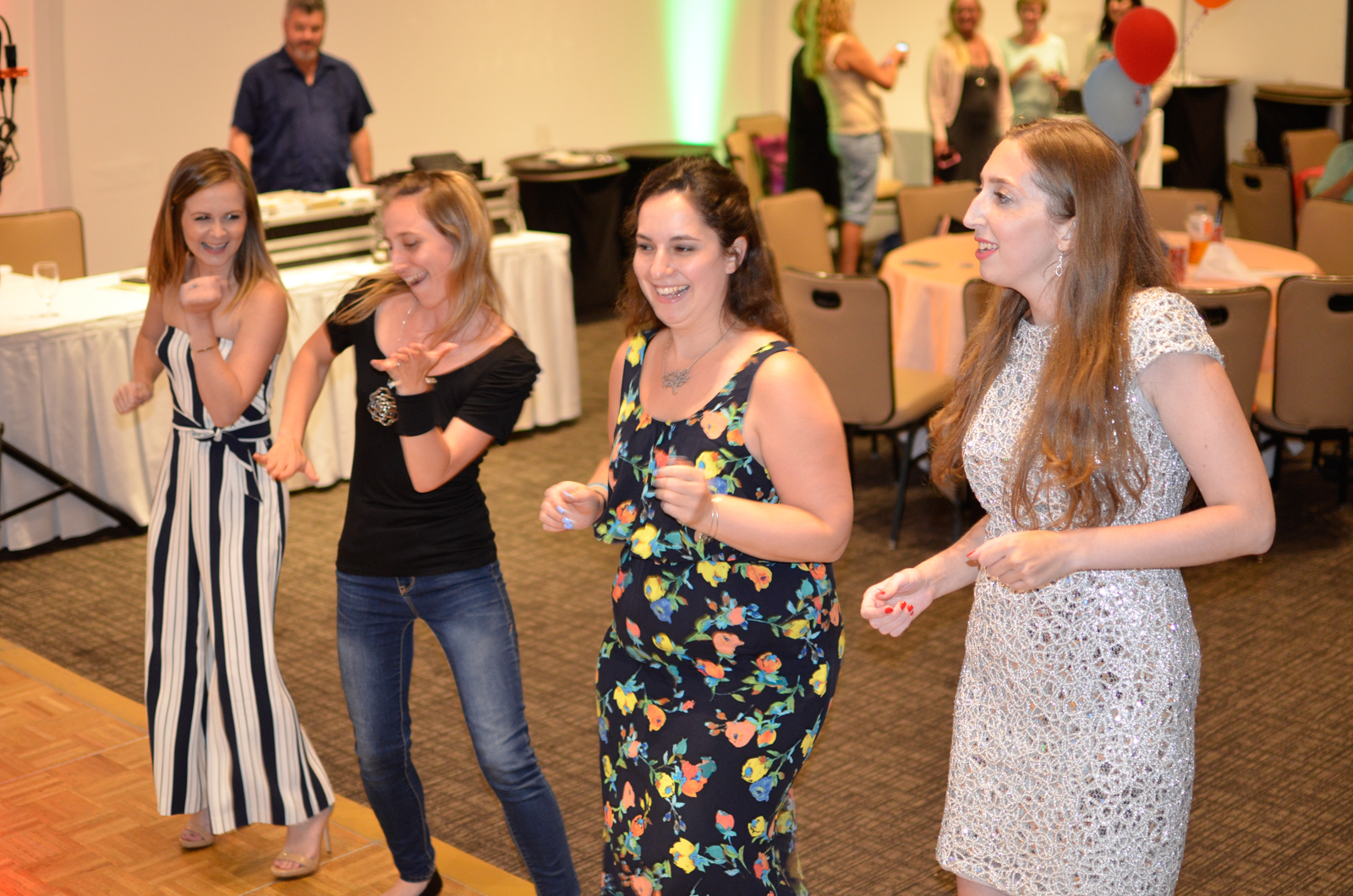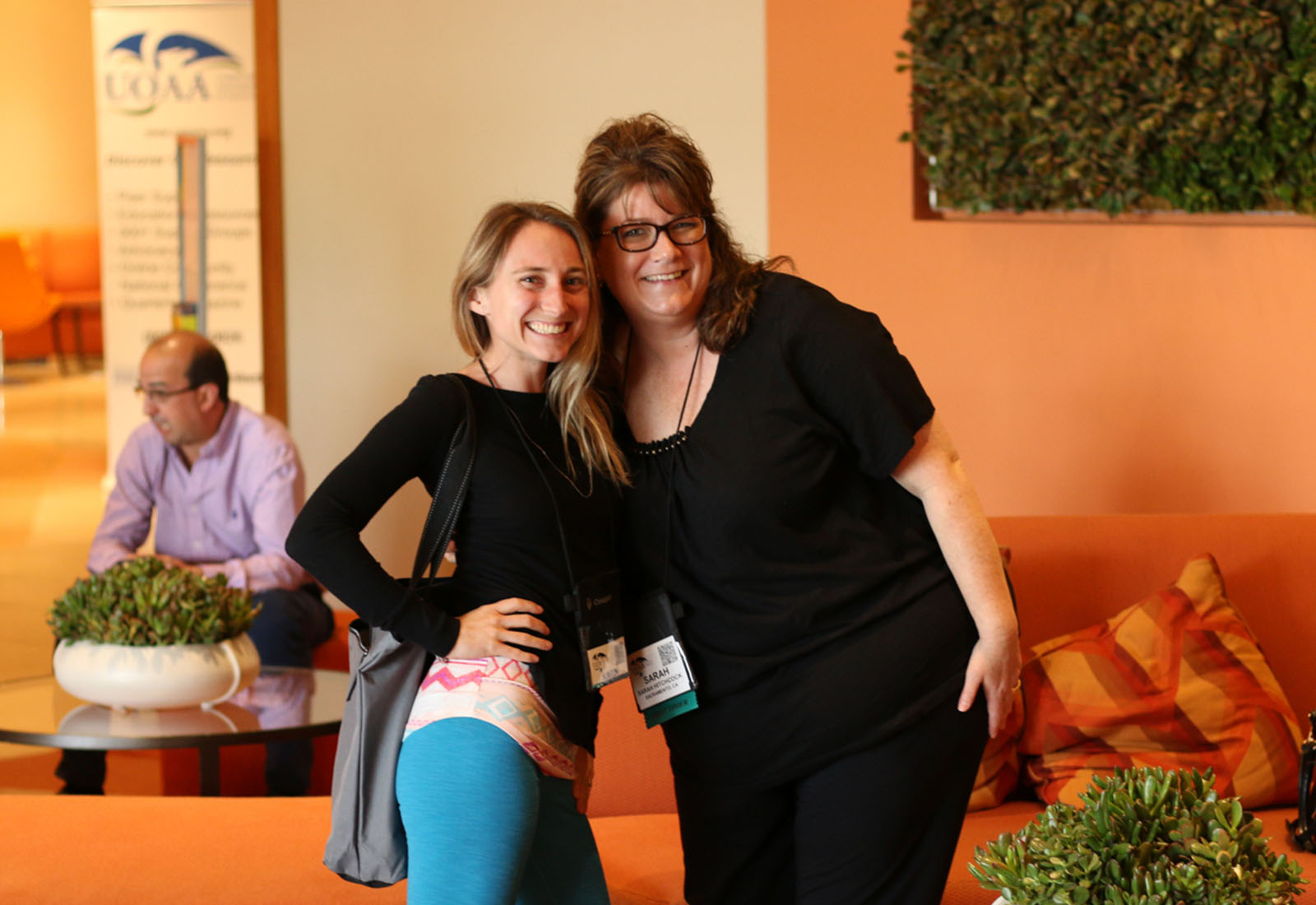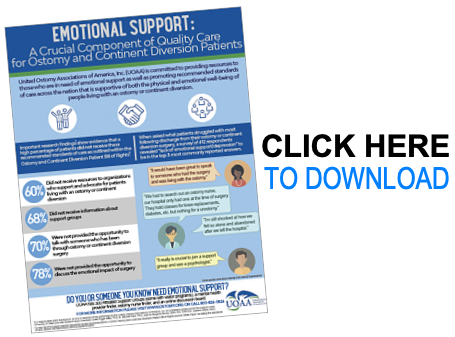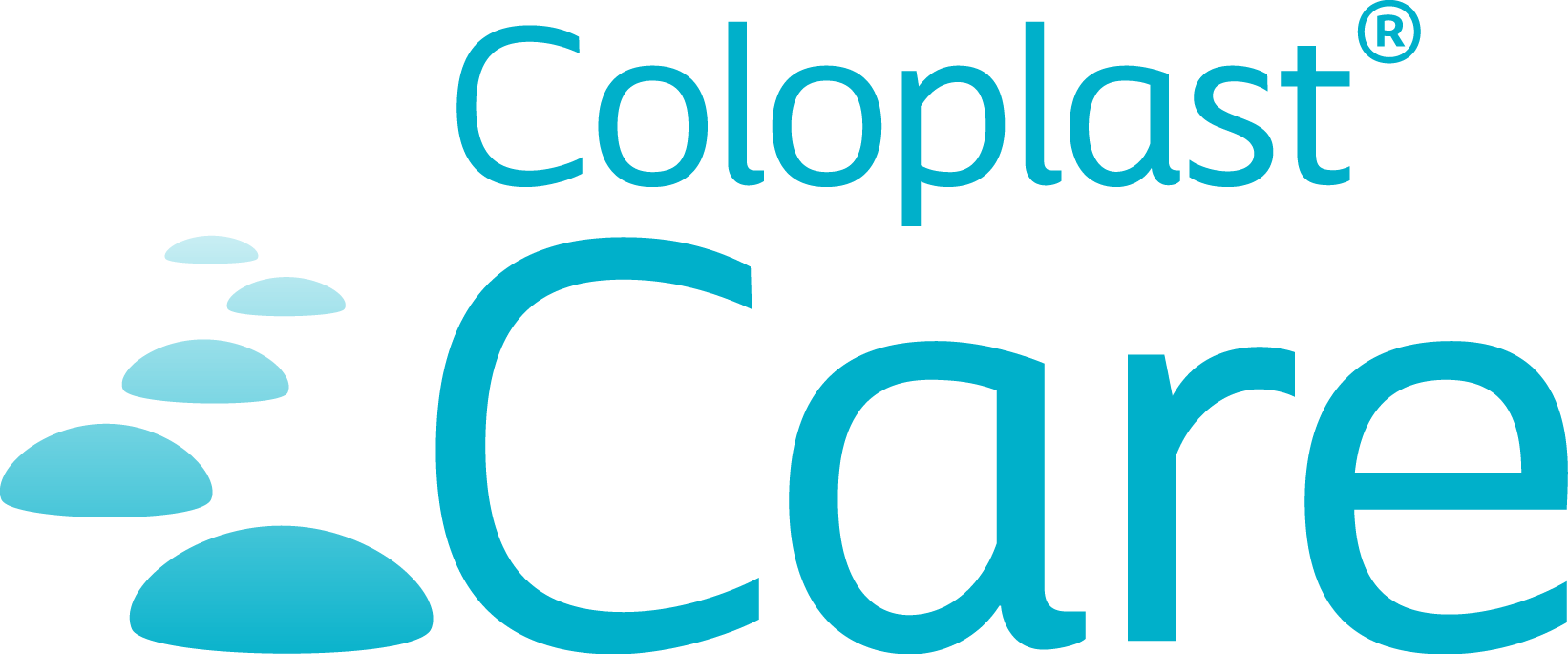UOAA’s National Conference the perfect place to bond
By Karin (Newbieostomy)
Ostomies don’t discriminate, it doesn’t matter your gender, sex, sexual orientation, race, ethnicity, religious beliefs, age, attitude toward life, social status, diet, or activity level. Whoever you are and wherever you come from, if you have an ostomy, you have something in common with 725,000 to 1,000,000 other Americans and a huge number of other people across the world. If you have an ostomy, you’ve probably experienced the anxiety, fear, and stages of grief that come with such a life-changing surgery. You may have experienced feelings of isolation, loneliness and despair, concern that your life was never going to be the same and that no one could possibly understand what you’ve gone through.

Karin and friends at the last UOAA National Conference in Irvine, California in 2017. A fashion show and dancing will again close out this year’s conference in Philadelphia Aug. 6-10.
It’s true that your life might never be the same, but it can absolutely be better. And it’s true that while only you have experienced your experiences, there are a ton of other people who can empathize and identify with what you’ve gone through by relating it to the similar experiences they’ve endured (and vice versa). United Ostomy Associations of America (UOAA) National Conference offers opportunities to meet these people face to face and when that happens, magic happens.
“I like figuring things out for myself. I just always figured this as my fight and nobody else is going to do it for me, so why go to a conference. However, I realized that I actually did have some unanswered questions and more than anything I was curious to see what I could learn at the conference. I’m glad I went, because all of my questions were answered, I made some new friends who share an immediate, strong connection and I found new courage and perspective that I didn’t realize was missing from my life.” – Nathan, first timer
Nathan has had his ostomy for seven years and still had questions. Good thing he came and got them answered! His “this is my fight” attitude is not unique to him (sorry, Nathan!). It may be your fight, but you don’t have to fight alone, and I think that’s a huge thing that people realize once they attend the conference. A perfect segue into one of my favorite parts of the conference: the unbreakable, timeless, instant bonds and friendships.
“I would say the most powerful aspect of the conference, that I was not expecting going into it, was how close everyone there seemed to be. It was my first UOAA conference, so I wasn’t sure exactly what to expect, but as soon as I got there (you) came up to introduce yourself, and within a few minutes we had a group that was speaking openly about anything and everything that came to mind.”
As a fairly introverted person who can often be quite clumsy when first starting a new conversation/friendship, I found the welcoming environment of everyone I met to be the highlight for me. The instant level of understanding between everyone was pretty special.” – Collin, first timer
At the UOAA conference, it’s like a weight is lifted, allowing people to candidly talk about the emotions, struggles, and achievements they’ve experienced. These people who were strangers a moment ago have an uncanny ability to say things that make you think “Yes! That! That’s exactly how I feel!” — An instant bond is created.
“[At UOAA’s Conference] I had no idea what to expect and went in knowing no one. When I got there I was quickly met by a girl who seemed around my age and had more energy and joy then I thought was even possible when first meeting someone. Her name is Alyssa and she instantly welcomed me to the “group”. My initial thought was I have no idea who these people are and she knows all of them and I am going to be the outsider. But I was totally wrong! I was welcomed and accepted by everyone instantly and next thing I know I am sitting in the pool with them, attending meals together, and exploring the conference together.

I learned that attending this conference was crucial to understanding myself, I learned that I can be myself still even though I have an ostomy and that my ostomy doesn’t hold me back or define me. We all talked openly about our struggles, which made me realize I am to the only going through the hard times, but most importantly we talked about the good things that have happened and come from our ostomy. We also talked about things having nothing to do with having an ostomy, and personally, I think when you can do both you have met a really good friend, they want to know who you are as a person not just who you are because you have an ostomy. Meeting this group of people was one of the most valuable things that happened at the conference.

Overall this conference was a life changing experience and I would really encourage anyone who has not attended one before to go to one. I think it is super important for younger ostomates because it gives you a chance to meet other people your age and just ask questions.” –Mallory, first timer
It was no surprise to me that Nathan, Collin and Mallory all had such positive things to say about their social experiences at the conference, because I had the same experiences at my first conference and again in 2017 (where I got to meet each of them)! We come to the conference for knowledge, but we keep coming back for the camaraderie.
UOAA’s National Conference is held every two years so while you may have missed the last one in Irvine, California, registration is now open for the 7th National Conference in Philadelphia from August 6-10, 2019.




